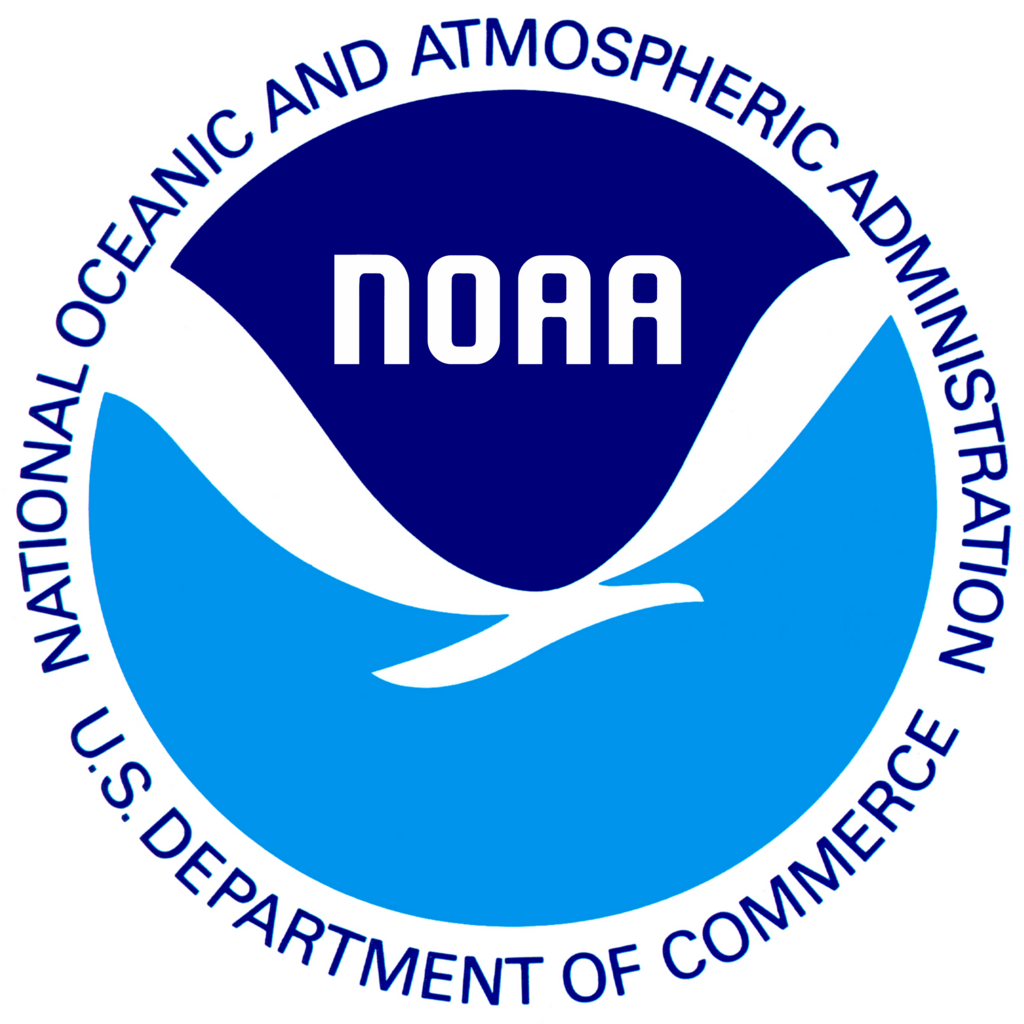SOLAR ENERGY
Becoming a SolSmart Region
To help our localities and our citizens benefit from the growing solar industry, and to ensure equitable and safe development, PlanRVA is pursuing regional certification in the national SolSmart program. Learn More about the program here.
Please check out our Letter of Commitment to the SolSmart Program.
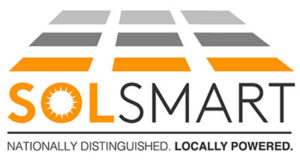
Overview
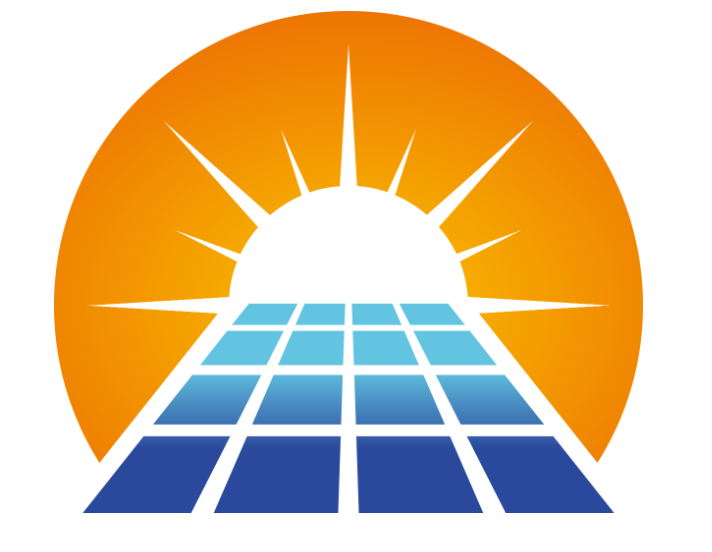
PlanRVA is committed to promoting the continued advancement of solar in our region and supporting the autonomy of our localities in making decisions about solar in their own communities. We are committed to the following:
- Promoting equitable access to the benefits of solar.
- Advancing data-driven, climate-smart decision-making that minimizes negative environmental impacts and improves resiliency.
- Providing resources to our localities that will help them adopt best practices and streamline their processes.
- Providing clear guidance and accurate information to citizens considering going solar.
Solar energy uses a renewable energy source – the sun – and provides many benefits for individuals and the region. It improves environmental quality by reducing carbon emissions and air pollution, supports local solar companies in Virginia, creates local jobs, saves money on energy costs, and improves electric grid resilience during peak demand and other stresses to the system.
For information about the basics of solar energy, your solar options, and questions to ask solar professionals, read the Residential Consumer Guide to Solar Power and visit the Department of Energy’s Homeowner’s Guide to Going Solar.
- Rooftop and ground-mounted solar collection facilities are permitted by right in Residential, Agricultural, Commercial, Mixed-Use, Industrial, or Institutional zones, provided that the facility serves the electrical or thermal needs of the property on which it is located (see Code of Virginia §15.2-2288.7. Local regulation of solar facilities). In plain language, this means that you can install solar panels on your home, business, or farm that serves the purposes of your property, but you cannot run an entire solar farm without additional permitting. Large scale solar facilities are subject to different regulations, which we will explore below.
- By-right solar facilities are still subject to local height and setback requirements; historic, architectural, or corridor protection district restrictions; and other applicable zoning regulations.
- HOAs cannot prohibit homeowners from installing solar unless the HOA’s recorded declaration (founding document) explicitly prohibits solar installations. They may establish “reasonable restrictions,” which are defined by Virginia Code §55.1-1820.1. Installation of solar energy collection devices.
- Virginia Building Energy Code
- Interconnection Standards – For Residential, Non-Residential, and Agricultural net metered systems and non-net metered residential systems.
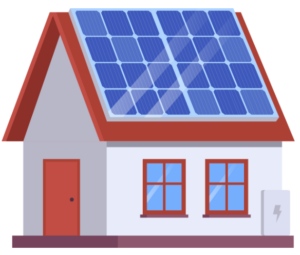
To better understand how large-scale solar development may impact the region, PlanRVA developed the Solar Suitability Tool to identify lands that are more or less suitable for this type of solar development. The tool is intended for locality planning staff, private developers, and landowners and may compliment existing site analyses. Learn more about these suitability characteristics in the mapping tool. For explanations of the underlying data used in the suitability analyses, refer to this introductory guide.
Other Tools
- Google Project Sunroof – Investigate your property’s solar potential and savings estimates.
- NREL’s PVWatts® Calculator – Estimate the performance of potential PV installations.
- SHINE Utility-Scale Solar Outlook in Virginia – View all utility-scale solar projects currently in the pipeline in Virginia; see projections MW output, jobs, and wages.
Finding a Contractor and Going Solar
Find a solar contractor(s) to assess your home or business for solar energy and provide a quote.
- Viridiant can provide home energy audits and solar assessments and connect occupants with reliable installers.
- Certified practitioners can be found through NABCEP.
- Visit EnergySage to learn about solar energy and submit for solar quotes from a network of pre-screened, local solar installers.
- Solar Customer Resource Portal – various resources from SEIA, the Solar Energy Industries Association.
-
- Consumer Guide to Solar Power
- HOA Solar Action Guide
- Guía para el usuario residencial de energía solar
- Residential Disclosure Forms
- Residential Consumer Guide to Community Solar (for renters)
- Guide to Land Leases for Solar
- Complaint Resolution Process
- Solar Owner’s Manual – information for current solar homeowners to ensure they are getting the most out of their system from Solar United Neighbors.
- Solar Checklist – The Interstate Renewable Energy Council’s checklist of key information to know before contracting for a solar system.
Consumer Protections and Solar Rights
- Clean Energy Consumer Bill of Rights – from the Interstate Renewable Energy Council (IREC)
- Virginia Solar Easements Act, Code of Virginia.
- A Beautiful Day in the Neighborhood: Encouraging Solar Development through Community Association Policies and Processes – includes details on how communities can encourage solar development through community association policies and processes.
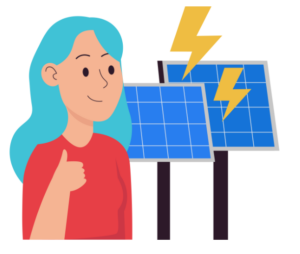
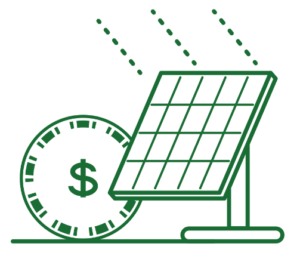
- Homeowner’s Guide to the Federal Tax Credit for Solar Photovoltaics – learn about the federal tax credit, eligibility, and other common questions & answers from the U.S. Department of Energy.
- A Homeowner’s Guide to Solar Financing – learn about different financing options from CESA, the Clean Energy States Alliance.
- Shared Solar Programs- State Solar Commission (SSC) allows customers to purchase solar generated electricity and receive renewable energy credits associated with their subscription to a shared solar facility.
Best Practices
Small-Scale Rooftop and Ground-Mounted Systems
-
- Best Practices in Solar Planning and Zoning – webinar and slides from SolSmart
- SolSmart Workshop: Best Practices for Solar PV Permitting and Inspection
-
- Model Inspection Checklist for Residential Rooftop PV – Guideline document from International Renewable Energy Council
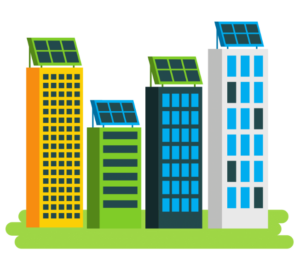
Utility-Scale
-
- NREL’s Seven Steps to Successful Large-Scale Solar Development
- Decommissioning Best Practices – Weldon Cooper Center, Virginia Tech
- Solar Site Pollinator-Smart - VADCR Program
-
-
- Some local ordinances require large-scale solar projects to participate in this voluntary program.
- Includes guidance, a native plant guide, and an invasive species guide.
-
Incentives & Tax Credits
- VA Green Energy Tax Credit – Up to $500 per each new green job created.
- VirginiaSAVES Green Community Loan Program - Provides low cost financing to private commercial and industrial, non-profits, and local governments to fund a wide range of energy efficiency and renewable energy projects.
- Virginia Small Business Financing Authority – Provides financing for wind and solar projects to small businesses and nonprofits.
- Virginia Resource Authority – Provides financing to localities for a variety of green energy production projects.
- Tax Exemptions for Solar Projects in Commercial, Industrial, or Agricultural Zones and Schools
If you are interested in pursuing a career in solar energy, here are some links to regional and national educational courses, programs, and/or trainings offered from colleges, universities, technical institutions, and non-profits.
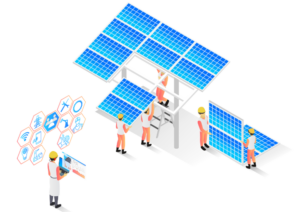
- Solar Ready Vets – Connecting transitional service members and veterans with career opportunities in the solar industry.
- Bridging the Gap – FREE solar installation training offered through a partnership between Viridiant, Richmond Office of Community Wealth Building, and Bridging the Gap in Virginia. Bridging the Gap is a nonprofit dedicated to ensuring Black and Brown communities are not left behind in the clean energy transition.
- GRID Alternatives – Offering workforce development opportunities for all, with special programs to expand opportunities for Women in Solar and college students.
- Piedmont Virginia Community College Solar Technician program – Prepares students for entry-level positions. Some students may qualify for free tuition, fees, and books.
- Southside Virginia Community College Solar Program
- Virginia Energy Workforce Consortium - Information for women, veterans, students, and career-changers.
- Flipp Inc. - Offers paid internships, nationally accredited solar training leading to an industry recognized credential and facilitated employment connections for industry professionals, BIPOC, women, veterans, LGBTQ and justice-impacted individuals.
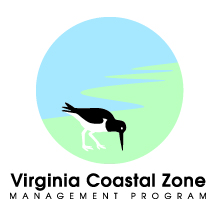
This project, Task # 48 was funded by the Virginia Coastal Zone Management Program led by the Virginia Department of Environmental Quality through Grant FY20 # NA20NOS4190207 of the US Department of Commerce, National Oceanic, and Atmospheric Administration, under the Coastal Zone Management Act of 1972, as amended. The views expressed herein are those of the authors and do not necessarily reflect the views of the US Department of Commerce, NOAA, or any of its subagencies.
